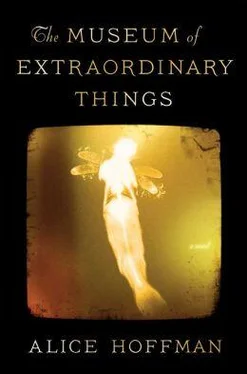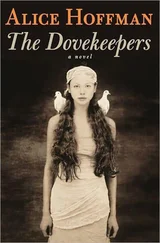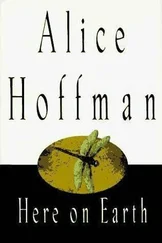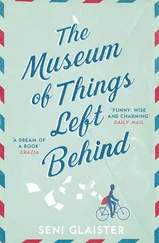“You don’t know shit,” the leader responded. He squinted to make himself look tough. He was older than he’d first appeared, maybe fourteen, nearly a man, but the scruffy clothes he wore were small on him, giving him the air of a boyhood that was already something of the past. Eddie recalled Hochman recommending that his boys try to appear childish. No one paid attention to children, and guilty men were much more likely to admit their transgressions when they thought no one of any worth would overhear.
The door to Hochman’s private office opened before the conversation grew more heated. Though he had an office on Rivington Street, it was here in his private chambers that Hochman performed marriage ceremonies and took the time to comfort those loveless women who had been abandoned by husbands and fiancés. A hush fell over the corridor as he entered. Hochman wore a velvet waistcoat and a tweed jacket, as dapper as ever. Ladies were drawn to him, and he did his best to encourage their devotion by paying attention to his appearance, even as he aged.
The rude boys shrank away, careful to mind their manners in the presence of their employer. A group of women were quick to surround the Wizard. They clasped at his arms, their emotions heightened by his presence, but Hochman excused himself. “Ladies, all good things take time, and in all good time I’ll hear every one of your stories.” He strode forward, pleased, for not much escaped his eye. He’d taken note of the tall young man dripping with rain and had immediately recognized his protégé. “Ezekiel,” he called fondly, signaling for Eddie to approach. “I knew you weren’t lost just because everyone’s written you off.”
Eddie winced. It was just like Hochman to wrap an insult inside a veneer of good cheer. The Wizard slapped him on the back, a little too heartily, for the welcome stung. “I know you, my boy. You’re here for something. Let’s not waste time. I have people waiting.”
Eddie followed Hochman into his office. It was lavishly furnished, with large leather chairs and a huge, ornate mahogany desk. The carpet was an Oriental, expensive and a bit garish, in bright tints of orange and blue. The walls had been covered with sheaths of blue silk wallpaper fashioned in China, purchased at a shop on Mulberry Street. Blue was said to be the color of trust and loyalty and wisdom, all of the attributes Hochman wanted his clients to associate with him.
Eddie sat in one of the leather chairs, made of deep maroon calfskin that was well worn and studded with brass buttons. He knew the Wizard avoided shaking hands, for he had a fear of contagious diseases, quite rational considering that many of the immigrants he dealt with were in poor health; tuberculosis and measles ran rampant in the tenement houses.
There were piles of official Jewish wedding contracts stacked on a long oak table. These ketubahs were beautifully made, decorated with gold leaf, each one printed individually, many with biblical scenes painted in watercolors. The marriage contracts would bear Hochman’s graceful signature after he had completed the ceremony, which he was legally entitled to perform, though he was neither a rabbi nor a city official. He charged no fee, but the larger the donation to the Hall of Love, the more fortunate the wedding couple would be.
Hochman eased himself into the chair behind his desk and offered Eddie a cigar. “No more wedding photographs? I heard you were a troublemaker and nobody wanted to hire you. You made scenes.”
“I was no good at it, so I gave it up.”
“You gave up quite a lot of things from what I hear.”
Eddie shrugged. His defection and his loss of faith were common knowledge in the neighborhood. On the way to Sheriff Street, a bearded old man in a broad-brimmed black hat, perhaps a member of his father’s shul, had spat on the ground when he passed by. Among the elder Cohen’s circle, a son who didn’t know enough to respect his father wasn’t worth much. One who didn’t respect his own people was beneath contempt.
“I was sorry to hear about Levy.” Hochman pushed a silver lighter across the desk. “He was a good photographer. A good man.”
Eddie lit the cigar and choked, humbled to have the exact same response he’d had when he finally accepted his first stogie from his employer. He’d done a particularly good job of tracking down a missing fiancé and Hochman had invited him into his office, an invitation he could brag about to the other boys. Eddie remembered being surprised by the conversation on that day. Hochman had asked what he thought of love, now that he was in the business. Nothing much, Eddie had replied. You don’t see how powerful a force it is? Hochman had asked. How it rules men’s lives?
I see misery . Nothing more.
If that’s true, son, Hochman had said , maybe you’re not as smart as I thought you were.
Hochman grinned when Eddie coughed. “Still not a smoker.” Clearly, he liked to get the better of people and show them their own failings. It made for easier negotiations.
“I suppose not.” Eddie propped up the cigar in a bronze ashtray, a beautiful piece, most likely a gift from a satisfied customer.
“Tiffany,” Hochman informed him.
“I suppose that means something to some people.” Eddie shrugged. “To me, it’s an ashtray.”
The older man leaned back in his chair. As a boy Eddie hadn’t noticed that his boss’s chair was larger by half than the chair that faced it, perhaps to ensure that a visitor would feel himself diminished in the presence of a superior man.
“You didn’t give notice when you left. I expected more from you.”
“I’m sure it was easy enough for you to find my replacement. We were all the same to you, weren’t we? Good little spies.”
“I gave you an opportunity. Working for me you ate better, you dressed better. You can’t deny you had a better life. Just as important—you learned valuable lessons. All my boys do.”
“I learned that people betrayed each other, that they fled from their responsibilities and treated each other like shit. Was that the lesson you wanted for us?”
“Not at all.” Hochman had aged since Eddie had last seen him, yet was still imposing with his large, leonine head and a mane of white hair which people said he powdered each morning. “It might have been shit to you, but the Times and the Herald and the Tribune still turn to me when they have a case they can’t solve. They still write about the boy I discovered under the Brooklyn Bridge when the police force couldn’t find a trace of him.”
Eddie’s hackles were raised. “I solved that case.”
“You found him, Ezekiel, but you solved nothing. Did you know he was murdered?”
Eddie tilted his chair forward, a strange heat rising in his face. He didn’t like to think about that night, even now. Still, he knew what he’d seen. “He’d frozen to death. Everyone I spoke to said he had the habit of wandering around the city at night. He died of exposure to the cold.”
“You didn’t grasp why he would do such a thing in such brutal weather. Was he a fool, or was he something else? You would have needed to possess empathy for another person in order to see what was in front of you. You would have had to cast off your own skin, and slip into his. In the case of Louis—if you remember, that was his name—his mother had a boarder, a Russian who drank and had a temper. He had begun beating the boy, who was certainly too afraid to tell his mother the truth about his situation. They needed the money, and I’m sure Louis thought they would starve without the income. I imagine the Russian threatened him with what he might do to the mother if he were exposed. One night, things went too far. The Russian wrapped Louis in a blanket and carried him to the embankment, leaving him beneath the bridge. The mother recognized the blanket as one she owned. She assumed her son had taken it with him, which I knew was highly unlikely. A wandering boy does not clutch a blanket when he climbs out the window. He wants to be free, not dragged down. I suppose you failed to notice the bruises around his throat. These marks led me to the truth.”
Читать дальше












